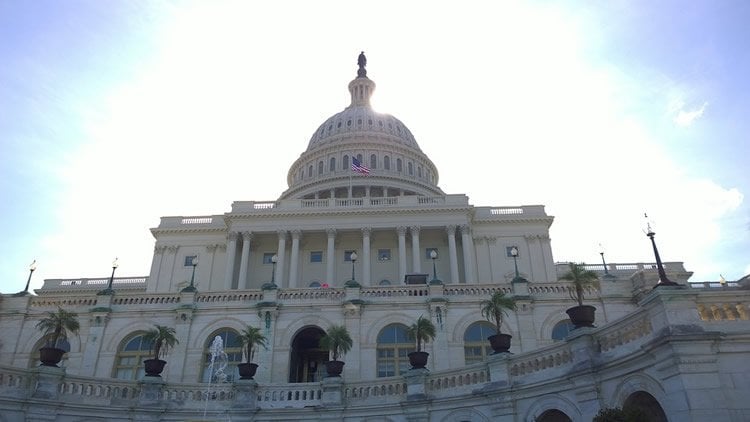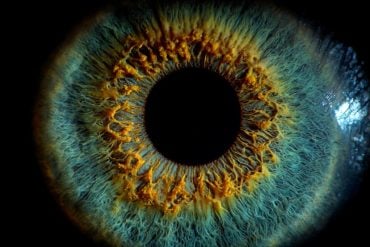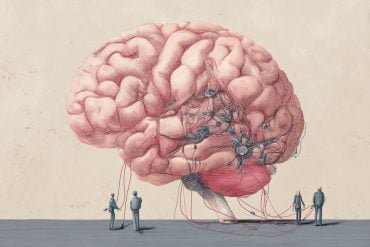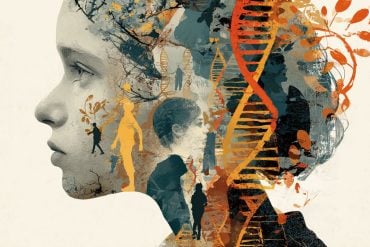Summary: Valuing our identity over our accuracy leads us to accept incorrect information that aligns with the beliefs of the political party we support, researchers report.
Source: Cell Press.
Fake news is everywhere, but why we believe it is still unclear. Drawing on neuroeconomics research in an Opinion published February 20th in the journal Trends in Cognitive Sciences, psychologists suggest that valuing our identity more than our accuracy is what leads us to accept incorrect information that aligns with our political party’s beliefs. This value discrepancy, they say, can explain why high-quality news sources are no longer enough–and understanding it can help us find better strategies to bridge the political divide.
“Neuroeconomics has started to converge on this understanding of how we calculate value. We’re choosing what matters to us and how to engage with the world, whether that’s which newspaper we pick up in the morning or what we have for breakfast,” says senior author Jay Van Bavel (@jayvanbavel), a psychologist at New York University. “And so we started to think, it’s when our goals to fit in with certain groups are stronger than the goal we have to be accurate that we are more likely to be led astray.”
This is what he calls his identity-based model of belief. The idea is that we assign values to different ideas based on what matters to us most at the moment and then compare those values to decide which idea we believe is true. Because our political parties can provide us with a sense of belonging and help us define ourselves, agreeing with them can bolster our sense of self. And that can sometimes matter more to us than accuracy about an issue, even if accuracy is something we normally do care about. When that happens, we’ll likely believe the ideas that align with our party’s views, no matter how plausible.
This can mean that the sources of information we normally rely on to shape our views have less of an impact. “Having a really high-quality news source doesn’t matter that much if we think the people producing it belong to a different group than us,” Van Bavel says. “They might have the best writers, the best investigative journalists, the best editorial standards, all the stuff that we would normally care about.” But we stop valuing those things, which would normally lead to a high likelihood of accuracy, and instead focus on the group we think the news is aligned with.
Still, Van Bavel does believe that his model offers strategies that can help bridge the political divide. “Our model really doesn’t pick a side,” he says. “What it argues for is increasing the value of truth or else finding ways to reduce the effects of identity, whether on the left or the right.”
Being put into a role that requires someone to be accurate, like being summoned for jury duty, can give people criteria with which to evaluate information and help them be better at thinking critically. Even more simply, Van Bavel says we can increase the value of accurate beliefs by asking people to put their money where their mouth is. “When you are in a disagreement, ask your opponent, ‘You wanna bet?’ And then their accuracy motives are increased, and you can see right away whether they were engaging in motivated reasoning. Suddenly $20 is on the line, and they don’t want to be proven wrong,” he says.

We can also work to reduce the effects of identity. One way is by creating a superordinate identity: getting people to think of themselves as citizens of a nation or the world rather than as members of a political party. But we also have to pay attention to how we engage with people of different political persuasions. “It turns out that if you insult them and publicly criticize them, their identity needs increase, and they become threatened and less concerned about accuracy. You actually need to affirm their identity before you present information that might be contradictory to what they believe,” Van Bavel says.
Currently, Van Bavel is working on empirical studies that will reaffirm the generalization of these neuroeconomics principles to our beliefs. In the meantime, though, and especially in today’s political climate, he believes the message is simple: “Our partisan identities lead us to believe things that are untrue. So, we need to step back and critically evaluate what we believe and why.”
Funding: This work was supported by the National Science Foundation and a Marie Sklodowska-Curie Postdoctoral Fellowship.
Source: Carly Britton – Cell Press
Publisher: Organized by NeuroscienceNews.com.
Image Source: NeuroscienceNews.com image is credited to Holmes et al./Trends in Cognitive Sciences.
Original Research: Abstract in Trends in Cognitive Sciences.
DOI:10.1016/j.tics.2018.01.004
[cbtabs][cbtab title=”MLA”]Cell Press “How Political Parties Influence Our Belief, and What We Can Do About It.” NeuroscienceNews. NeuroscienceNews, 20 February 2018.
< https://neurosciencenews.com/belief-politics-8531/>.[/cbtab][cbtab title=”APA”]Cell Press (2018, February 20). How Political Parties Influence Our Belief, and What We Can Do About It. NeuroscienceNews. Retrieved February 20, 2018 from https://neurosciencenews.com/belief-politics-8531/[/cbtab][cbtab title=”Chicago”]Cell Press “How Political Parties Influence Our Belief, and What We Can Do About It.” https://neurosciencenews.com/belief-politics-8531/ (accessed February 20, 2018).[/cbtab][/cbtabs]
Abstract
The Partisan Brain: An Identity-Based Model of Political Belief
Over 2 billion people use social media every day, and many use it to read and discuss politics. Social media also facilitate the spread of fake news and hyper-partisan content.
Online discussions of politicized topics, including political events and issues (e.g., same-sex marriage, climate change, gun control), resemble an echo chamber. That is, posts on these topics are shared primarily by people with similar ideological preferences.
Political polarization is most likely when users employ moral/emotional language. This may reflect ideological differences between people on the left versus right or partisanship.
Online partisan criticism that derogates political opponents increases political polarization.
Liberals are somewhat more likely to share cross-ideological content on social media (i.e., information posted by people with different ideological beliefs).
Democracies assume accurate knowledge by the populace, but the human attraction to fake and untrustworthy news poses a serious problem for healthy democratic functioning. We articulate why and how identification with political parties – known as partisanship – can bias information processing in the human brain. There is extensive evidence that people engage in motivated political reasoning, but recent research suggests that partisanship can alter memory, implicit evaluation, and even perceptual judgments. We propose an identity-based model of belief for understanding the influence of partisanship on these cognitive processes. This framework helps to explain why people place party loyalty over policy, and even over truth. Finally, we discuss strategies for de-biasing information processing to help to create a shared reality across partisan divides.






